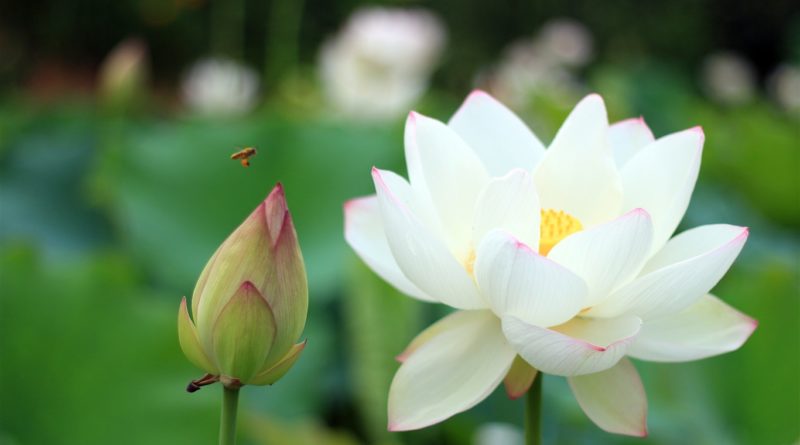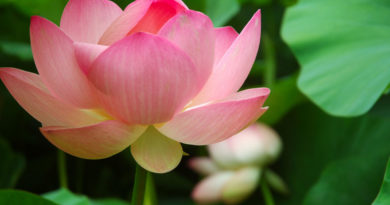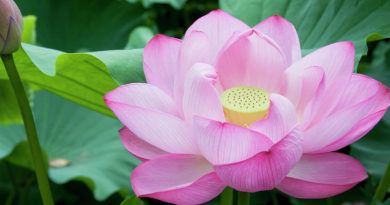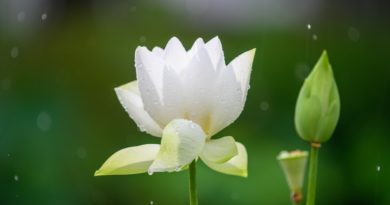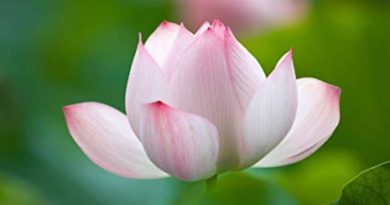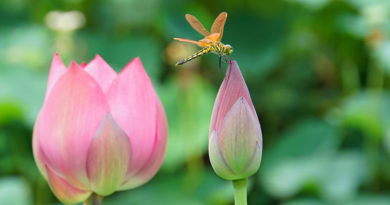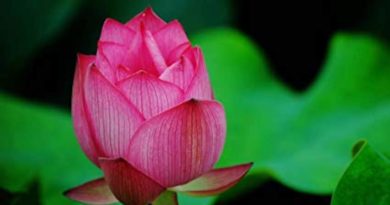Volume Iv –– Saḷāyatanavaggo Samyutta 34 –– Saḷāyatana Saṃyutta Chapter 13 –– Gahapati Vaggo
Sutta Pitaka
Samyutta Nikāya
Volume IV –– Saḷāyatanavaggo
Samyutta 34 –– Saḷāyatana Saṃyutta
Chapter 13 –– Gahapati Vaggo
34. 13. 1.
(124) Vesāli –– The Householder of Vesali
1. At one time the Blessed One lived in a gabled hall in the Great Forest.
2. Then the householder Ugga of Vesali approached the Blessed One, worshipped and sat on a side.
3. Sitting on a side the householder Ugga of Vesali said to the Blessed One: “Venerable sir, what is the reason for a certain person to attain extinction here and now and another person not attain extinction here and now?”
4––9 “Householder, the monk sees agreeable, welcome forms cognizable by eye-consciousness. They arouse sensual desires and promote attachments. The monk delights, welcomes and stays attached to them. Settling there, consciousness holds it. Householder, with holdings the monk does not extinguish. Householder, the monk hears agreeable welcome sounds, cognizes agreeable welcome scents, tastes agreeable welcome savories and cognizes agreeable welcome touches. Householder, the monk cognizes agreeable, welcome ideas cognizable by mind-consciousness. They arouse sensual desires and promote attachments. The monk delights, welcomes and stays attached to them. Settling in those ideas, consciousness holds it. Householder, with holdings the monk does not extinguish.
10. “Householder, this is the reason for a certain person not to extinguish here and now.
11––16. “Householder, the monk sees agreeable, welcome forms cognizable by eye-consciousness. They arouse sensual desires and promote attachments. The monk does not delight, welcome and stay attached to them. Consciousness does not settle and hold them. Householder, without holdings the monk extinguishes. Repeat for sounds, scents, savories, touches and ideas
17. “Householder, this is the reason for a certain person to extinguish here and now.”
34. 13. 2.
(125) Vajji –– The Householder of Vajji
1. At one time the Blessed One lived with the Vajji’s in the village, Hatthi.
2. Then the householder Ugga of the village Hatthi approached the Blessed One, worshipped and sat on a side.
3. Sitting on a side the householder Ugga of the village Hatthi said to the Blessed One: “Venerable sir, what is the reason for a certain person not to attain extinction here and now and another person to attain extinction here and now?”
4. “Householder, the monk sees agreeable, welcome forms cognizable by eye-consciousness. They arouse sensual desires and promote attachments. The monk delights, welcomes and stays attached to them. Settling in those forms, consciousness holds them. Householder, with holdings the monk does not extinguish.
5––8. “Householder, the monk hears agreeable welcome sounds, cognizes agreeable welcome scents, tastes agreeable welcome savories and cognizes agreeable welcome touches.
9. “Householder, the monk cognizes agreeable, welcome ideas cognizable by mind-consciousness. They arouse sensual desires and promote attachments. The monk delights, welcomes and stays attached to them. Settling in those ideas consciousness holds them. Householder, with holdings the monk does not extinguish.
10. “Householder, this is the reason for a certain person not to extinguish here and now.
11––16. “Householder, the monk sees agreeable, welcome forms cognizable by eye-consciousness. They arouse sensual desires and promote attachments. The monk does not delight, welcome and stay attached to them. Consciousness does not settle and hold them. Householder, without holdings the monk extinguishes.
17. “Householder, this is the reason for a certain person to extinguish here and now.”
34. 13. 3.
(126) Nālandā –– The Householder Upāli
1. At one time the Blessed One lived in the mango orchard of Pāvārika.
2. Then the householder Upāli approached the Blessed One, worshipped and sat on a side.
3. Sitting on a side the householder Upāli said to the Blessed One: “Venerable sir, what is the reason for a certain person not to attain extinction here and now and another person to attain extinction here and now?”
4––16. Repeat as above Sutta.
17. “Householder, this is the reason for a certain person to extinguish here and now.”
34. 13. 4.
(127) Bhāradvāja –– Venerable Piṇḍola Bhāradvāja
1. At one time venerable Piṇḍola Bhāradvāja lived in Kosambi in the monastery offered by Ghosita.
2. Then king Udena approached venerable Piṇḍola Bhāradvāja, exchanged friendly greetings and sat on side.
3. King Udena sitting on a side said to venerable Piṇḍola Bhāradvāja: “Bhāradvāja, why do these young monks with black hair, in the prime of youth, not enjoying sensual pleasures devote their life to lead a complete and pure holy life until the end of their lives?”
4. “Great King, the Blessed One who knows and sees is worthy and rightfully enlightened has said: ‘Monks, think of them who are like your mothers as your mother, of them who are like your sisters as your sister, of them who are like your daughters as your daughter. This is the reason for the young monks with black hair, in the prime of youth, not to enjoy sensual pleasures, to devote their life to lead a complete and pure holy life until the end of their lives.”
5. “Bhāradvāja, the mind is greedy and even towards a woman of your mother’s age, or even towards a woman of your sister’s age, greedy thoughts would arise. Is there another reason for these young monks with black hair, in the prime of youth, to not enjoy sensual pleasures, to devote their lives to lead a complete and pure holy life until the end of their lives?”
6. “Great King, the Blessed One who knows and sees is worthy and rightfully enlightened has said: ‘Come! Monks, reflect this same body up from the feet, down from the top of the head, enclosed with the skin on all sides as filled with impurities. There are in this body, hairs of the head and of the body, nails, teeth, skin, flesh, veins, bones, bone-marrow, kidneys, heart, liver, pleura, spleen, lungs, entrails, lower intestines, stomach, excreta, bile, mucus, pus, blood, sweat, oil of the skin, tears, eye-wax, spit, snot, oil of the joints and urine’ Great king, this is also a reason for the young monks with black hair, in the prime of youth, not to enjoy sensual pleasures, to devote their lives to lead a complete and pure holy life until the end of their lives.”
7. “Bhāradvāja, it is easy for monks developed, in the body, virtues, mind and in wisdom to lead a complete and pure holy life until the end of their lives. Yet on a certain day, what is reflected as impure would not reflect as impure to him. Is there another reason for these young monks with black hair, in the prime of youth, to not enjoy sensual pleasures, to devote their lives to lead a complete and pure holy life until the end of their lives?”
8. “Great King, the Blessed One who knows and sees is worthy and rightfully enlightened has said: ‘Come! Monks, seeing a form you should not take the sign or its details. If it happened that you lived with the mental faculty of the eye unguarded with evil demerit and displeasing covetousness streaming from your mind, fall to the method of guarding your mind and the mental faculty of the eye.”
Repeat for the ear, nose, tongue, and body.
“Monks, cognizing an idea do not take the sign or its details. If it happened that you lived with the mental faculty of the mind unguarded with evil demerit and displeasing covetousness streaming from your mind, you should fall to the method of guarding your mind and the mental faculty of the mind. Great king, this is also a reason for the young monks with black hair, in the prime of youth, not to enjoy sensual pleasures, to devote their lives to lead a complete and pure holy life until the end of their lives.”
9. “Good Bhāradvāja, these words of the Blessed One who knows and sees is worthy and rightfully enlightened are wonderful and surprising. This is the reason for the young monks with black hair, in the prime of youth, not to enjoy sensual pleasures, to devote their lives to lead a complete and pure holy life until the end of their lives.”
10. “Good Bhāradvāja, when I enter the women’s quarters bodily, verbally, and mentally unguarded, mindfulness not established and mental faculties unprotected, I enter it with a lot of greed. When I enter the women’s quarters bodily, verbally, and mentally guarded, mindfulness established and mental faculties protected, I enter it without a lot of greed.”
11. “Good Bhāradvāja, I understand it! It is like something overturned is reinstated, something covered is made manifest, as though the path was shown to them who have lost their way. It’s as though an oil lamp was lighted for those who have their sight to see forms. Good Bhāradvāja has explained the Teaching in many ways. Now I take refuge in that Blessed One, in the Teaching and the Community of monks. Good Bhāradvāja remember me as a lay disciple who has taken refuge from today until my life lasts.”
34. 13. 5.
(128) Soṇo –– The Householder Soṇa
1. At one time the Blessed One lived in the squirrels’ sanctuary in the bamboo grove in Rajagaha.
2. Then the householder’s son Soṇa approached the Blessed One, worshipped and sat on a side.
3. Sitting on a side the householder’s son, Soṇa said to the Blessed One: “Venerable sir, what is the reason for a certain person to attain extinction here and now and another person not attain extinction here and now?”
4––6. Repeat as above Sutta 124.
17. “Householder, this is the reason for a certain person to extinguish here and now.”
34. 13. 6.
(129) Ghosita –– The householder Ghosita
1. At one time venerable Ānanda was living in Ghosita’s monastery in Kosambi.
2. Then the householder Ghosita approached venerable Ānanda, worshipped and sat on a side.
3. Sitting the householder Ghosita said to venerable Ānanda: “Venerable sir, Ānanda, the Blessed One had said ‘the diversity of elements’ What is the diversity of elements?”
4. “Householder, there are forms for the eye element, agreeable eye-consciousness and pleasant feelings that arise on account of pleasant contacts. There are forms for the eye element, disagreeable eye-consciousness and unpleasant feelings that arise on account of unpleasant contacts. There are forms for the eye element, neither agreeable nor disagreeable eye-consciousness and neither pleasant nor unpleasant feelings that arise on account of neither pleasant nor unpleasant contacts.
5. “Householder, there are sounds for the ear element re
6. “Householder, there are scents for the nose element re
7. “Householder, there are tastes for the tongue-element, agreeable tongue-consciousness and pleasant feelings that arise on account of pleasant contacts. There are tastes for the tongue-element, disagreeable tongue-consciousness and unpleasant feelings that arise on account of unpleasant contacts. There are tastes for the tongue-element, neither agreeable nor disagreeable tongue-consciousness and neither pleasant nor unpleasant feelings that arise on account of neither pleasant nor unpleasant contacts.
8. “Householder, there are touches for the body element re
9. “Householder, there are ideas for the mind element, agreeable mind-consciousness and pleasant feelings that arise on account of pleasant contacts. There are ideas for the mind element, disagreeable mind-consciousness and unpleasant feelings that arise on account of unpleasant contacts. There are ideas for the mind element, neither agreeable nor disagreeable mind-consciousness and neither pleasant nor unpleasant feelings that arise on account of neither pleasant nor unpleasant contacts.
10. “Householder, these are all the diverse elements told by the Blessed One.”
34. 13. 7.
(130) Hāliddako –– The Householder Hāliddakāni
1. At one time venerable Mahākaccāna was living on the Pavatta rock in a house where large hawks abound.
2. Then the householder Hāliddakāni approached venerable Mahākaccāna worshipped and sat on a side.
3. Sitting on a side the householder Hāliddakāni said: “Venerable sir, the Blessed One had said on account of diverse elements arise diverse contacts, on account of diverse contacts arise diverse feelings. Venerable sir, how do diverse contacts arise on account of diverse elements and how do diverse feelings arise on account of diverse contacts?”
4. “Here householder, the monk seeing a form knows it is pleasant, knows eye consciousness is pleasant and he knows on account of a pleasant contact is a pleasant feeling. The monk seeing a form knows it is unpleasant, knows the eye consciousness is unpleasant and he knows on account of an unpleasant contact is an unpleasant feeling. The monk seeing a form knows it is neither unpleasant nor pleasant, knows eye consciousness is neither unpleasant nor pleasant and he knows on account of a neither unpleasant nor pleasant contact is a neither unpleasant nor pleasant feeling.
5––9. “Again, householder, the monk hearing a sound, cognizing a scent, tasting a savory, cognizing a touch, cognizing an idea the monk knows it is pleasant, knows mind consciousness is pleasant and he knows on account of a pleasant contact is a pleasant feeling. The monk cognizing an idea knows it is unpleasant, knows mind consciousness is unpleasant and he knows on account of an unpleasant contact is an unpleasant feeling. The monk cognizing an idea knows it is neither unpleasant nor pleasant, knows mind consciousness is neither unpleasant nor pleasant and he knows on account of a neither unpleasant nor pleasant contact is a neither unpleasant nor pleasant feeling.
10. “Householder, in this manner, diverse contacts arise on account of diverse elements and diverse feelings arise on account of diverse contacts.”
34. 13. 8.
(131) Nakulapita –– The Householder Nakula Father
1. At one time the Blessed One lived in the deer park, in the Bhesakala forest among the Sunsumara rocks.
2. Then the householder, Nakula father approached the Blessed One, worshipped and sat on a side.
3. Sitting on a side the householder, Nakula father said to the Blessed One: “Venerable sir, what is the reason for a certain person not to attain extinction here and now and another person to attain extinction here and now?”
4. “Householder, the monk sees agreeable, welcome forms cognizable by eye-consciousness. They arouse sensual desires and promote attachments. The monk delights, welcomes and stays attached to them. Settling in those forms, consciousness holds them. Householder, with holdings the monk does not extinguish.
5––8. “Householder, the monk hears agreeable welcome sounds, cognizes agreeable welcome scents, tastes agreeable welcome savories and cognizes agreeable welcome touches.
9. “Householder, the monk cognizes agreeable, welcome ideas cognizable by mind-consciousness. They arouse sensual desires and promote attachments. The monk delights, welcomes and stays attached to them. Settling in those ideas consciousness holds them. Householder, with holdings the monk does not extinguish.
10. “Householder, this is the reason for a certain person not to extinguish here and now.
1––6. “Householder, the monk sees agreeable, welcome forms cognizable by eye-consciousness. They arouse sensual desires and promote attachments. The monk does not delight, welcome and stay attached to them. Consciousness does not settle and hold them. Householder, without holdings the monk extinguishes.
17. “Householder, this is the reason for a certain person to extinguish here and now.”
34. 13. 9.
(132) Lohicco –– The Brahmin Lohicca
1. At one time venerable Mahākaccāna lived in a hut of leaves in a place called the Capricorn’s mouth.
2. At that time, some pupils, youngsters of the Brahmin Lohicca had gone to collect firewood and they approached venerable Mahākaccāna’s leaves hut, not entering it they walked around it, passing comments loudly and exchanging jokes among themselves. ‘These shaven headed menials, recluses born from the feet of Brahma, these carriers of loads are honored, revered, and esteemed!’
3. Then venerable Mahākaccāna appeared from the leaves hut and said to those youngsters: “Young men do not make a noise! I will teach you.”
When this was said the young men kept silence.
4. Then venerable Mahākaccāna said these stanzas to them:
“In the past too there were virtuous brahmins,
Who lived guarding their mental doors of contact,
They abode anger overcome! 1.
Attached to the Teaching,
They raised their minds, to a higher degree.
I abide, above the intoxicated by birth
They live a life of lawlessness. 2
Overcome by anger some punish,
The infirm and also the firm
Those with unprotected doors are foolish,
Birth as human beings, they gained in a dream. 3
Some do not destroy seedlings and plants,
Bathe early, learn the Brahmin scriptures,
Wear a rough skin and a dirty head dress,
Repeating the scriptures is their austerity. 4
They are deceitful, crafty and punishing.
Gain purity by washing with water.
This is how they grade themselves.
They do nothing to develop the mind. 5
The path of purity is concentrating,
Purifying the mind undisturbed.
Without hurting any beings,
Attain that purity. 6
5. Then those young men angry and displeased approached the Brahmin Lohiccha and said: “Good one, know this, the recluse Mahākaccāna in a way depreciates the Brahmin scriptures and abuses them.”
The Brahmin Lohiccha hearing this was angry and displeased.
6. Then it occurred to the Brahmin Lohiccha, it is not suitable for one like me, to scold and depreciate the recluse Mahākaccāna on the words of these young men. I myself should approach him and ask about it.
8. Sitting on a side the Brahmin Lohicca said to venerable Mahākaccāna: “Good Kaccana did some of my pupils, come here when they came to fetch fire wood in the forest?
7. Then the Brahmin Lohiccha approached venerable Mahākaccāna with the young men, exchanged friendly greetings and sat on a side.
And was there some kind of conversation between good Kaccana and the young men?”
“I had some conversation with those young men.”
“What was the conversation with the young men and good Kaccana?”
“Brahmin, this is the conversation I had with the young men. I said:
“In the past too, there were virtuous Brahmins,
Who lived guarding their mental doors of contact,
They lived their anger overcome. 1.
They were attached to the Teaching,
And raised their minds, to a higher degree.
I abide, above the intoxicated by birth,
Who live a life of lawlessness. 2
Overcome by anger some punish,
The infirm and also the firm
Those with unprotected doors are foolish,
Birth as human beings, they gained in a dream. 3
Some do not destroy seedlings or plants,
Bathe early, learn the Brahmin scriptures,
Wear a rough skin and a dirty head dress,
And repeating the scriptures is their austerity. 4
They are deceitful, crafty and punishing.
Gain purity by washing with water.
This is how they grade themselves.
They do nothing to develop the mind. 5
The path of purity is concentrating,
Purify the mind undisturbed.
Without hurting any beings,
Attain that purity.” 6
9. “Good Kaccana said ‘unprotected doors,’ how are the doors of mental contact unprotected?”
10. “Here Brahmin, someone seeing a form, indulges in a pleasant form and repulses an unpleasant form and abides with a limited mind, mindfulness not established. There too he does not know the release of mind and the release through wisdom, as it really is, how arisen evil demerit ceases without anything remaining
11––14. Hearing a sound re scenting a smell, re tasting a savory re cognizing a touch re
15. “Someone cognizing an idea indulges in a pleasant idea and repulses an unpleasant idea and abides with a limited mind, mindfulness not established. There too he does not know the release of mind and the release through wisdom, as it really is, how arisen evil demerit ceases without anything remaining.
16. “Brahmin, these are the unprotected doors.”
17. “Wonderful and surprising good Kaccana, you explain the unprotected doors of mental contact as though with unprotected doors of mental contact. Good Kaccana, you said the ‘protected door,’ what is the protected door?”
18. “Here Brahmin, someone seeing a form does not indulge in a pleasant form nor repulses an unpleasant form and abides with an unlimited mind, with established mindfulness. There too he knows the release of mind and the release through wisdom, as it really is, how arisen evil demerit ceases without anything remaining.
19––22. “Hearing a sound re scenting a smell re tasting a savory re cognizing a touch re
23. “Someone cognizing an idea does not indulge in a pleasant idea nor repulse an unpleasant idea and abides with an unlimited mind, with established mindfulness. There too he knows the release of mind and the release through wisdom, as it really is how arisen evil demerit ceases without anything remaining.
24. “Brahmin, these are the protected doors of mental contact.”
25. “Wonderful and surprising good Kaccana, you explain the protected doors of mental contact as though you are with protected doors of mental contact. Good! Kaccana, it’s like something overturned is put upright! Some covered thing is made manifest. It is as though the path is shown to someone who has lost his way. It is like lighting an oil lamp for the darkness, so that those who have their sight could see forms. Good Kaccana has explained the Teaching in many ways. Now I take refuge in the Blessed One, in the Teaching and the Community of monks! May good Kaccana think of me as a lay disciple who has taken refuge from today until I live. When good Kaccana approaches the families of lay disciples of the village, mouth of the Capricorn, may you take the opportunity to approach the family of Lohiccha, so that the young boys and girls would get a chance to worship, attend to, prepare a seat or offer some water and that will be for their happiness for a long time!”
34. 13. 10.
(133) Verahaccāni –– The Brahmin Woman Verahaccāni
1. At one time venerable Udāyī lived in Kamanda, in the mango orchard of the Brahmin Todeyya.
2. Then the young servant of the Verahaccāni family approached venerable Udāyī, exchanged friendly greetings with venerable Udāyī and sat on a side.
3. And venerable Udāyī advised, incited, aroused and made the heart light of the servant of the Verahaccāni family.
4. Advised by venerable Udāyī that young servant approached the Brahmin woman of the Verahaccāni family and said: “Good lady, know this, the recluse Udāyī preaches the Teaching that is full of essence, even in the words and is good at the beginning, in the middle, and at the end, and it declares the pure and complete holy life.”
5. “Then, young man, invite venerable Udāyī for tomorrow’s meal in my words!”
The young man agreed and approached venerable Udāyī and said: “Good sir, Udāyī, accept tomorrow’s meal from our teacher’s wife, the Brahmin woman of the Verahaccāni family.”
Venerable Udāyī accepted the offer in silence.
6. Then venerable Udāyī dressing and taking bowl and robes in the morning approached the Brahmin woman of the Verahaccāni family and sat on the prepared seat.
7. The Brahmin woman of the verahaccani family with her own hands offered nourishments and hard eatables and satisfied venerable Udāyī.
8. When the Brahmin woman knew, venerable Udāyī had finished his meal, put away the bowl, she put on her shoes covered her head, sat on a stately seat and said: “Recluse teach me!”
Venerable Udāyī said: “Sister there will be a suitable time.” Got up from his seat and went away.
9. For the second time the young servant of the Verahaccāni family approached venerable Udāyī, exchanged friendly greetings and sat on a side and venerable Udāyī advised, incited, aroused and made the heart light of the servant of the Verahaccāni family.
10. For the second time advised by venerable Udāyī the young servant approached the Brahmin woman of the Verahaccāni family and said: “Good lady, know this, the recluse Udāyī preaches the Teaching that is full of essence, even in the words and is good at the beginning, in the middle and at the end and it declares the pure and complete holy life”.
11. “Young man, in this manner you talk in praise of the recluse Udāyī and when I said recluse teach me, he saying, ‘sister there will be a time for that’ got up from his seat and went away to his dwelling”
12. “Good lady, you put on your shoes, covered your head and sitting on a stately chair said ‘recluse teach me!’ Those good ones revere the Teaching, it’s out of reverence for the Teaching.”
13. “Then, young man, invite venerable Udāyī for tomorrow’s meal in my words!”
The young man agreed and approached venerable Udāyī and said: “Good sir, Udāyī, accept tomorrow’s meal from our teacher’s wife, the Brahmin woman of the Verahaccāni family.”
Venerable Udāyī accepted the offer in silence.
14. Then venerable Udāyī dressing and taking bowl and robes in the morning approached the Brahmin woman of the Verahaccāni family and sat on the prepared seat.
15. The Brahmin woman of the verahaccani family with her own hands offered nourishments and hard eatables and satisfied venerable Udāyī.
16. When she knew that venerable Udāyī had finished his meal, put away the bowl the Brahmin woman pulled out her shoes, disclosed her head and taking a low seat said: “Venerable sir, when what is present do the noble ones point out pleasant and unpleasant feelings and when what is not present do the noble ones not point out pleasant and unpleasant feelings?”
17. “Sister, when the eye is present the noble ones point out pleasant and unpleasant feelings. When the eye is not present the noble ones do not point out pleasant and unpleasant feelings. When the ear is present re the nose is present, re tongue is present, re the body is present, the mind is present the noble ones point out pleasant and unpleasant feelings and re when the mind is not present the noble ones do not point out pleasant and unpleasant feelings.”
18. When this was said the Brahmin woman of the Verahaccāni family said to venerable Udāyī: “Venerable sir, now I understand, it’s like something overturned is put upright! Some covered thing is made manifest. It is as though the path is shown to someone who has lost his way. It is like lighting an oil lamp for the darkness, so that those who have their sight could see forms. Venerable Udāyī has explained the Teaching in many ways. Now I take refuge in the Blessed One, in the Teaching and the Community of monks! May venerable Udāyī think of me as a lay disciple who has taken refuge from today until I live.”

